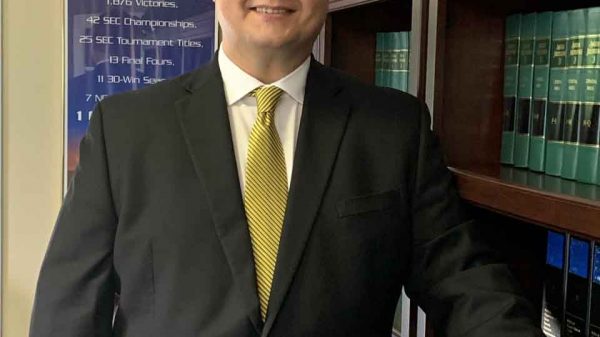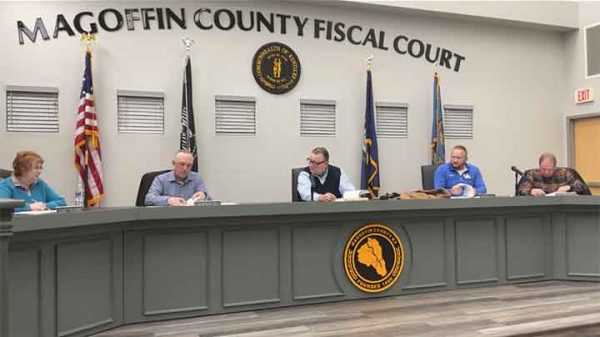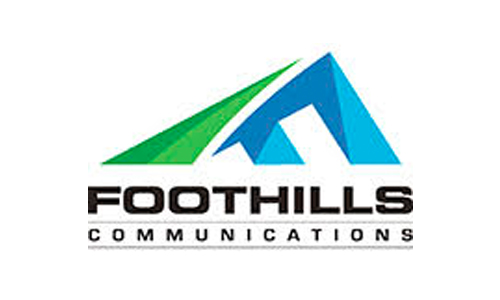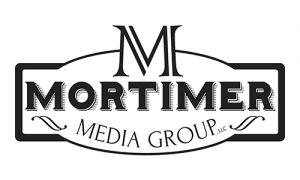FRANKFORT – On Tuesday State Auditor Allison Ball released a limited-scope examination of Salyersville Water Works (SWW), with 10 findings reported for the time frame of July 1, 2021, through March 31, 2024. SWW was established in 1952 as a water provider for the city of Salyersville, formerly ran by a board, but has operated as a department of the City since October 2023.
Auditor Ball’s report indicated that the special examination of SWW contained 10 findings:
1. SWW Lacked Adequate Internal Control Structure– Lacked internal controls and engaged in poor security practices, leaving them vulnerable to fraud and other unlawful activities.
Among the findings, blank checks were kept on a shelf and the credit card was kept in an unsecured closet with no sign-out process or formal approval required prior to use, leaving both open to potential misuse. Two signatures were required for checks, but a signature stamp was used by one commissioner with no controls in place to reduce the risk of misuse. Receipts were not deposited daily, undeposited funds were placed in a closet that current and former SWW employees have a key to unlock, and bank accounts were not reconciled monthly, leading to overdrafts on accounts and charges of $1,585.
The auditor’s office recommended SWW create a strong internal control environment, establish a proper approval process for purchases and make sure all appropriate personnel know the rules and strictly adhere to them. They recommended the bank accounts be reconciled monthly and to require approval and supporting documentation before making adjustments to customers’ bills.
2. Billing Adjustments Were Not Handled Properly – SWW did not have a policy outlining when an adjustment to a customer’s bill would be appropriate and allowable, nor sufficient documentation explaining why some adjustments were made. As a result, hundreds of thousands of dollars were adjusted on bills without any supporting documentation over the examination period.
During the exam period, numerous adjustments were made without any supporting documentation and employee names were not associated with the individual adjustments. Many of the accounts adjusted had “was told to adjust” as the reason for the adjustment, and despite the fact customers are only supposed to receive one adjustment per year, numerous customers “including a family member of the former general manager” received multiple adjustments each year without adequate adjustments.
Perhaps most concerning is the dollar amount that was adjusted in the first quarter of 2024, compared to 2022 and 2023. In 2022, 817 bills were adjusted, totaling at $162,225 adjusted for the fiscal year. In 2023, 590 bills were adjusted, for a total of $134,352. During the first quarter of 2024, 963 bills were adjusted, totaling a whopping $890,312 adjusted.
The auditor recommended SWW establish a comprehensive policy on the adjustment of bills by SWW personnel, including what adjustments are allowed and unallowed, how many adjustments can be made per year, who can authorize adjustments, and what documentation is required per adjustment.
3. Insufficient Controls Led to Questionable Purchases – Numerous purchases, totaling over $20,000 by SWW staff were excessive, predominantly personal, or lacking a clear business purpose. When credit card transactions and checks were tested, few were adequately supported by proper documentation.
Additionally, SWW employees were not required to log mileage or turn in receipts for gas purchases.
Within the full report, the auditor’s office included the following instances of questionably spending of public funds by SWW staff:
• While there was no documentation provided for the $5,125 spent at the Salyersville IGA, SWW personnel informed auditors the purchase was for “gift cards for employees, board members, and the mayor at the time for Christmas and Thanksgiving.”
• SWW sponsored Christmas parties with catered meals, bonuses, gift cards, and a large basket filled with items from a local market estimated to be valued at $100.
• Snacks for employee use, totaling $1,498, were purchased with SWW’s Staples credit card (e.g., candy, water, ketchup).
• $8,854 was spent on lunches at local restaurants with no documented business purpose.
• $2,791 was spent at out-of-town restaurants with no verified business purpose.
• $777 in credit card charges were made outside of normal business hours with no documented business purpose.
• $296 in credit card charges were made at a floral/gift shop.
• $1,910 in interest and late fees to Visa and Staples.
• SWW failed to utilize its tax exemption status and paid cumulative sales tax of $132.
The lack of documentation prevented auditors from verifying the propriety of numerous expenditures, including vendor payments to Walmart, Family Dollar, B&B Discount Tobacco, Dollar General, Amazon, and Prater Drugs.
The auditor recommended that SWW require all purchases made with public funds to be reasonable in amount, beneficial to the public and not predominantly personal, including “if Christmas gifts or other personal expenses are desired (e.g., snacks for employees), personal funds should be used to cover the expenses.” SWW should require all purchases have sufficient documentation, require bills and invoices be paid in a timely manner, and utilize tax exemption status when applicable.
4. Receipts Were Not Accounted for Properly – Cash, checks, and credit card deposits were not properly accounted for nor supported by proper documentation, resulting in numerous occasions in which auditors were not able to determine if funds were deposited.
According to the report, the auditors were not able to determine if all funds received were deposited due to numerous concerns. They selected 20 days to review, finding three cash deposits short – one by $4,044, another by $455, and the last by $100. Four of the 20 days had missing receipts and five of the days had credit card receipts that couldn’t’ be traced to bank statements. Two of the days tested had deposits that included three or more days of receipts collected. Some receipts being deposited had been delayed an extended period of time, with the audit report giving the example of funds deposited on January 12, 2022, totally $20,133, were for funds received as far back as November 2021.
Among the recommendations, they said SWW should require all cash, check and credit card deposits be accounted for and supported by proper documentation, deposits should be made daily, the amount deposited should coincided with applicable checkout sheets, and they should initiate timely investigations into suspicious financial activities.
5. Public Funds Were Improperly Utilized for Employee Bonuses – Bonuses were given to employees during the Christmas holiday totaling $6,750 for FY 2021 and $7,042 for FY 2022. The use of public funds for bonuses violates Section 3 of the Kentucky Constitution.
The auditor recommended SWW cease using public funds to award employees bonusses in order to comply with the state constitution.
6. The SWW Board Does Not Have Statutory Authority to Establish Fees – SWW started charging $7 per month to customers with a grinder pump for grinder pump maintenance fees to offset the rising cost and upkeep of grinder pumps. This fee was passed with one board member’s approval; however, the Board does not have the statutory authority to impose these fees.
The auditor’s office recommended SWW consult with the city attorney to determine proper corrective actions.
This is the same fee former SWW Superintendent David Gardner questioned in a Salyersville City Council meeting recently, with the fee being instituted before the commission was dissolved, but when it had only one member.
7. SWW Engaged in Questionable Real Property Transaction – In May 2022, the City sold property to SWW. SWW was established and currently operates as a department of the City. SWW is not a separate corporate entity entitled to hold real property in its own name. Rather, any real property should be held in the name of the City. SWW mortgaged the property and the City allowanced it. This was found to be in direct violation of state law.
Through the examination, the auditors found in City Council minutes from a meeting held on September 22, 2014, the city council had approved the transfer of the property form the city to SWW, though it’s unclear if that transfer would have been legal at the time since SWW was a separate entity, but the transfer was not effectuated until almost eight years later, in May 2022. In the 2014 minutes, the council approved the transfer, but made no actions regarding SWW telling them they planned on encumbering the property with a loan after the transfer. The auditors also noted that the City has never put the encumbrance of the property transferred to SWW to a vote of the City’s citizens. According to mortgage documents, SWW had somehow encumbered the property with a mortgage and line of credit about a year before the City actually deed the property over to SWW.
Based on the “murkiness” of the legality of all the transactions surround the property, the auditor recommend SWW consult with the city attorney, Kentucky League of Cities and the Attorney General’s office for opinions as to the legality of the transactions as soon as possible.
8. SWW Has Failed to Maintain a Sufficient Capital Asset Listing – SWW’s capital asset listing did not provide descriptions, historical costs, or year of acquisition for any of the recorded assets, which included vehicles and buildings.
9. SWW Lacks Written Policies and Procedures – Operated without guidance and uniformity because they did not have any written policies and procedures to create an organizational structure to follow on a day-to-day basis and to ensure financial transactions were properly handled, recorded, and documented.
The auditor’s office recommended SWW to consult with the city attorney to either adopt the city’s policies and procedures or to develop or obtain from a hired third-party policies and procedures specific to SWW.
10. SWW Failed to Implement Segregation of Duties – Without supervision, the office manager was responsible for preparing bills, adjusting bills, accepting payments, posting payments, making deposits, and reconciling accounts. These duties should be segregated or compensated with controls to mitigate the risk of undetected waste, fraud, and abuse.
City’s Response
In a letter to the auditor dated January 2, 2025 from City Clerk Karen Howard and Mayor Stanley Howard, they noted that many of the issues in the report date back to before the City took over control of SWW and stated that many of the issues have either already been addressed or are in the process of being resolved.
In the letter, the City agreed with all recommendations, promising to implement internal control structures, segregation of duties, policies for adjusting customers’ bills, controls for purchases, and policies for deposits. They stated they are working with the city attorney to remedy the illegal $7 fee. According to the letter, they have transferred all real property back to the city, though no note was given about the outstanding mortgage and line of credit SWW had on one of the properties. They agreed to ensure the capital asset list contains all required information. Furthermore, they said the City will consult with both the city attorney and a third party to develop policies and procedures specific to SWW and provide training to all SWW personnel.
To view the full report and complete list of recommendations, click here.



















